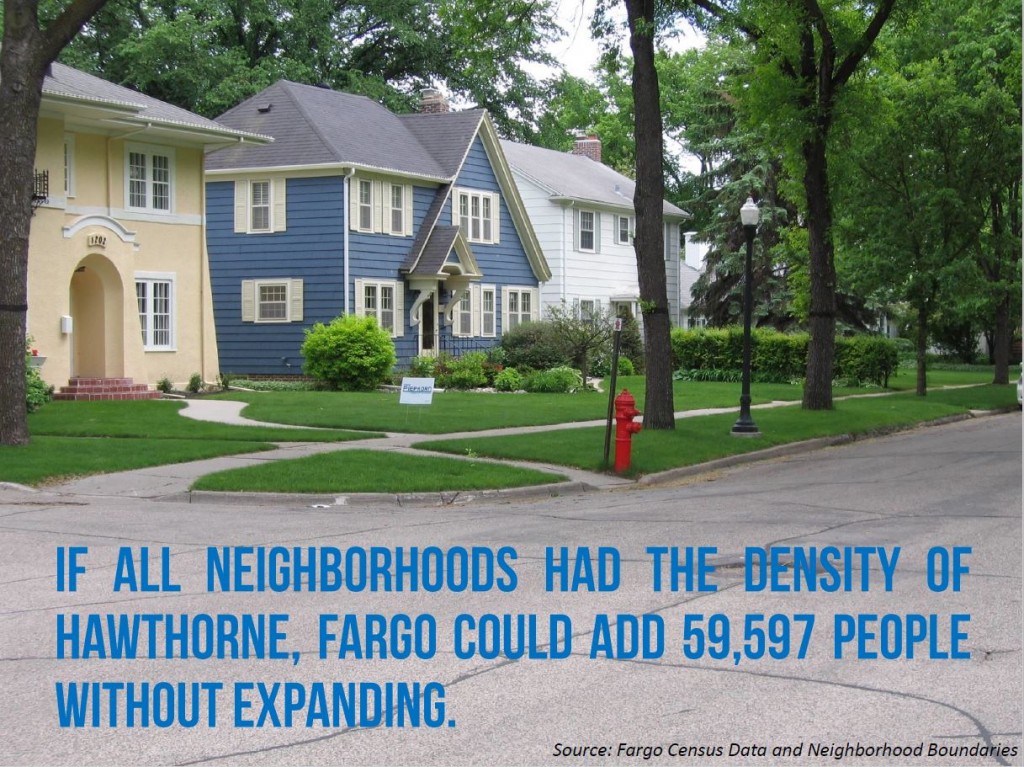
Density can be a polarizing word.
On October 30, 2015, The Forum featured Kilbourne Group founder Doug Burgum in an article titled, “Burgum: Fargo should stop getting bigger, start getting denser.” It has been followed by more articles and letters to the editor debating the virtues and detriments of density.
Kilbourne Group believes in the powerful economics of appropriate density. Density in downtown Fargo works. More people in less space means fewer cars, more walking, lower costs and higher taxes derived for the city.
Strong planning is a foundational tool for the future economic and physical health of an entity, and this is especially true for cities. For the good of all, we must make the most efficient use of city infrastructure dollars.
Charles Marohn, founder and president of Strong Towns, has said, “density is not our problem or our solution. Insolvency is our problem. Productive places are the solution. If density matters for anything, it is a byproduct of success, not its cause.”
This concept is not new. Fargo leaders, past and present, have advocated for smart growth. It is in our best interest, and that of future generations, that we grow in a way that protects our choices and is sustainable.
Letter to the Editor
Published in The Forum December 13, 2015
Written by former Fargo Mayor Jon Lindgren
Matt Noah;s reasons for not wanting a densely populated city means he endorses urban sprawl (letter, Dec. 2). It’s one or the other. His reasons for wanting urban sprawl border on the humorous.
The neighborhood schools he endorses are the product of dense, not sprawling cities. The less dense the city, the farther from their neighborhood children have to transported.
He also contradicts himself in saying he does not like heavy car traffic. Urban sprawl, which necessitates more driving, means more traffic. Dense population numbers mean less driving and less traffic.
As to his notion that densely populated cities have more welfare, that certainly is contrary to our current national experience. Poverty is now growing in suburbs as jobs and prosperity are returning to the center of cities.
Cities in the U.S. are slowly walking back the mistakes of subsidizing suburbs and penalizing central cities. The notion we could have something like “country living” by covering farmland with highways was never a workable idea. To have great neighborhoods, less traffic and better urban economies, we need compact densely populated cities.